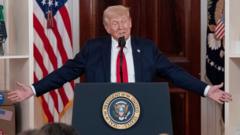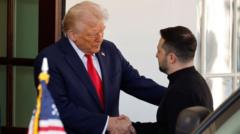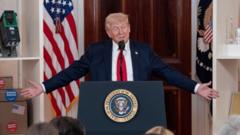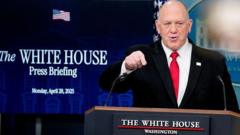In the first 100 days of Trump's second administration, a shift in U.S. foreign policy emerges—transactional, unpredictable, and marked by chaos.
America's 100 Days of Disruption: Trump’s Unconventional Foreign Policy

America's 100 Days of Disruption: Trump’s Unconventional Foreign Policy
Examining President Trump's Erratic Global Strategy in His Second Term
As President Donald J. Trump embarked on his second term, the early days introduced a starkly different style of foreign diplomacy. Pushing aside traditional norms, Trump's approach has been defined as transactional and exploitative, reshaping America's relationships worldwide.
One illustrative incident occurred in Munich when a senior aide to Vice President JD Vance attempted to urgently negotiate a minerals extraction agreement with a reluctant Ukrainian official late at night. This urgency provided a glimpse into the chaos and unpredictability characterizing U.S. diplomacy under Trump, manifesting as an almost imperial demand for control over available resources.
The minerals deal, finally ratified a few days later, symbolizes the erratic nature of the current administration’s foreign dealings. Critics note that Trump’s dealings resemble a wrecking ball aimed at NATO and the rules governing global trade, rather than a cohesive strategy for international relations.
Heightened tensions have also led to heightened scrutiny in Europe, particularly concerning American troop deployment amidst ongoing Arctic drills. European officials now voice concerns over the potential withdrawal of tens of thousands of American troops across the continent, leading many to question the reliability of U.S. commitments going forward.
As the new administration seeks to navigate the complexities of foreign policy, allies and adversaries alike are adjusting to this unpredictability, highlighting a pivotal moment in global diplomacy.






















